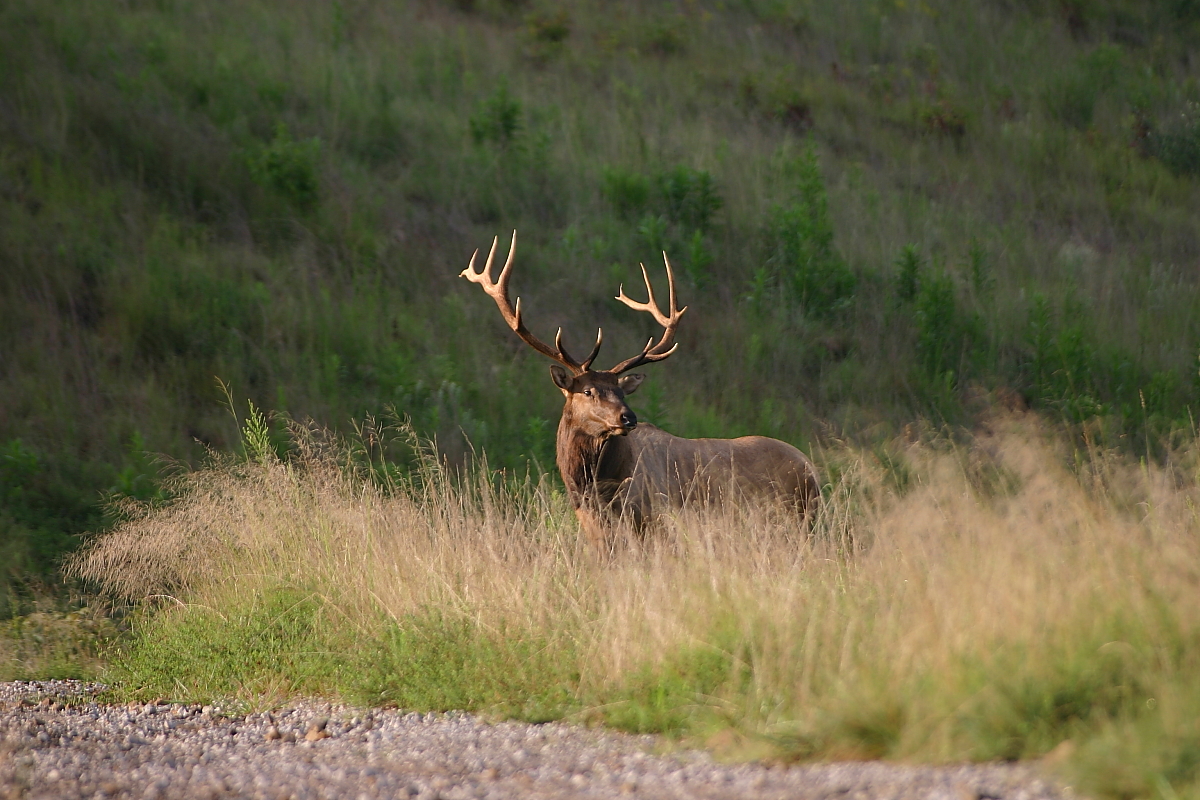Below is a news release from the Kentucky Department of Fish and Wildlife Resources. The Rocky Mountain Elk Foundation supplied more than $2.5 million to assist with the first relocation of elk from Kansas to Kentucky in 1997, and later reintroductions from other states over the next five years.
The Wildlife Society has honored the Kentucky Department of Fish and Wildlife Resources with its 2023 Wildlife Restoration Award for the reintroduction and management of elk in southeastern Kentucky.
Kentucky’s elk program has been lauded as one of the most successful wildlife restoration programs in United States history. From 1997-2002, Kentucky Fish and Wildlife translocated 1,541 elk from six western states to establish what is now the largest herd of the species east of the Rocky Mountains. Kentucky’s elk herd affords the most extensive opportunities to hunt or view the species in the eastern U.S.
In 2022, Kentucky Fish and Wildlife completed the last major step of its elk restoration activities when it relocated 43 live-trapped animals from neighboring counties to McCreary County, the final county in the designated elk zone to have year-round residents of the species. A healthy and sustainable population now extends across all 16 counties of the state’s elk range.
“I’m extremely proud of our staff, current and past commission members, and partners such as the Rocky Mountain Elk Foundation and local government officials who have supported our elk program in a variety of ways,” said Rich Storm, commissioner of Kentucky Fish and Wildlife. “This award salutes the combined efforts of everyone involved in our elk restoration efforts through the years, from boldly envisioning it in the mid-1990s to continued enhancements through research, habitat improvement and public access today,” Storm added.
Elk were extirpated—made locally extinct—by about 1850 in Kentucky. Like most other large mammals, the species was decimated during westward expansion as a result of rapid habitat loss, commercial exploitation and unregulated hunting.
Science-based wildlife conservation has enabled state and federal wildlife agencies such as Kentucky Fish and Wildlife to actively restore many species of wildlife that were previously extirpated or imperiled. In addition to elk, white-tailed deer, wild turkeys, river otters, bald eagles and peregrine falcons have been the subject of other highly successful wildlife restoration programs completed in Kentucky in recent decades.
More than 500 species of fish, wildlife and native plants are noted as “species of greatest conservation need” in Kentucky’s current State Wildlife Action Plan, the blueprint for restoring the most imperiled fauna and flora in the Bluegrass State today. Kentucky Fish and Wildlife hopes to reverse the trajectory of these species through focused partnerships and focused restoration activities. Recent wildlife restoration efforts include native freshwater mussels and hellbenders, the largest salamanders of Kentucky.
The award was presented at The Wildlife Society’s annual conference held recently in November in Louisville. The honor celebrates the Wildlife Restoration program, established by the Pittman-Robertson Act to provide vital federal funding to help support the work of state wildlife agencies.
The Wildlife Society is the international organization of wildlife professionals. The society provides professional certification of wildlife biologists who meet rigorous criteria for university education and verified experience in the field of wildlife conservation or research. It also publishes important research journals and professional communications, advocates for public policy in keeping with its mission, and supports professional development through its conference and programs.
Hunting yields more than $1.3 billion in economic benefit each year in Kentucky. Expenditures from elk hunting alone result in more than $3.5 million worth of economic impact to local economies annually. In 2023, Kentucky Fish and Wildlife awarded nearly 600 elk hunting permits to selected applicants through its annual randomized hunt drawing. Elk hunters travel from across Kentucky and elsewhere in the nation to scout and hunt.
(Photo credit: Kentucky Department of Fish and Wildlife Resources)
